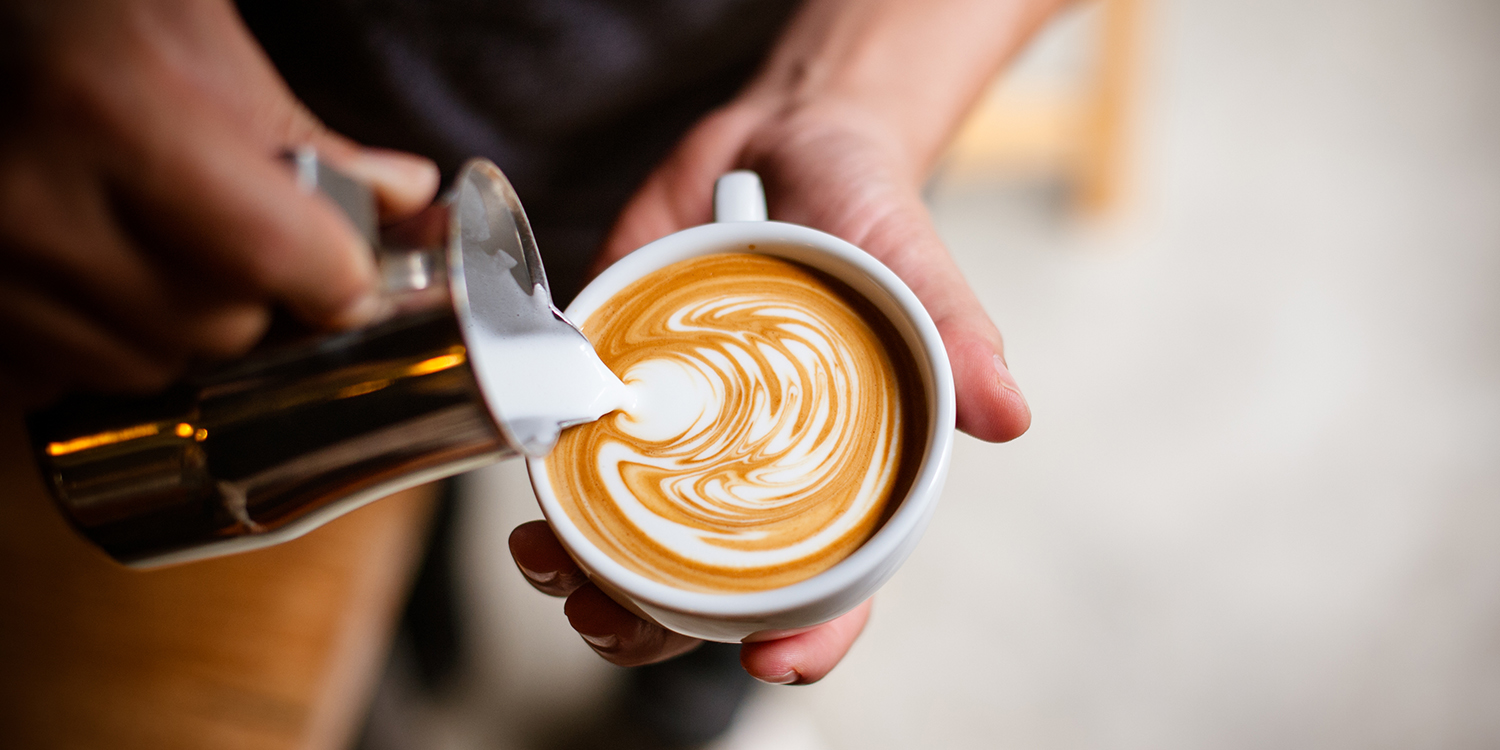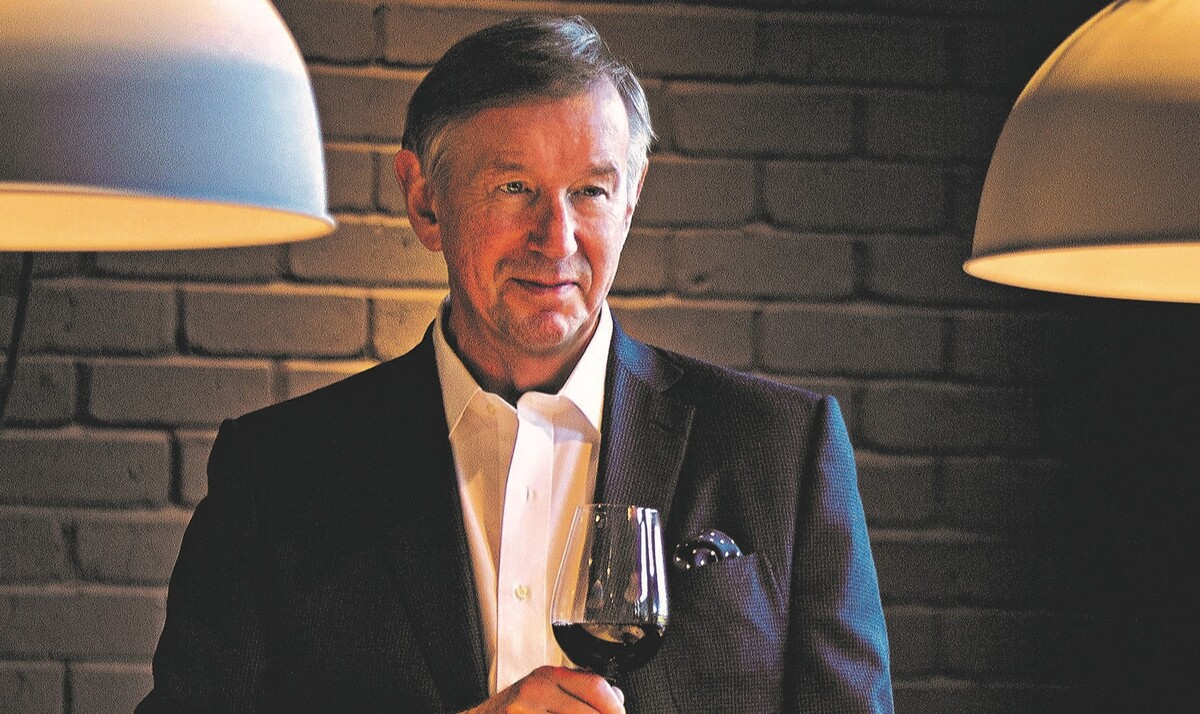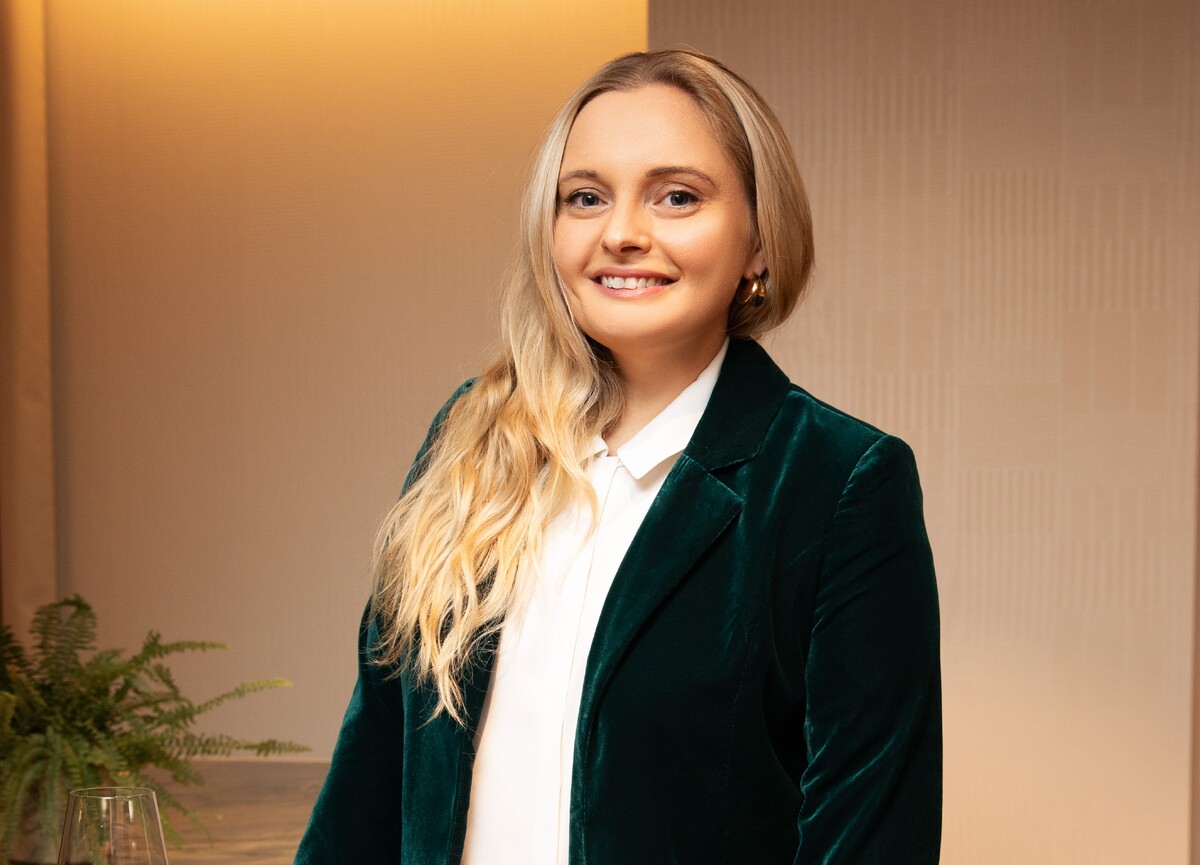Thrills, chills and all the frills: the coolest trends in coffee kit
The coffee sector continues to be one of the most innovative in the catering industry, with water filtration, chilled milk and super-accurate dosage grinding among the hottest – and coolest – trends in beverage equipment, as Ian Boughton reports
There is always more to the coffee sector than meets the eye. While the cool high-street cafés are generally reckoned to be the early adopters of new ideas, it is noticeable that the trends they take up quickly become important to the wider catering sector.
Among the major recent coffee trends, two particular matters have emerged: the practicality of water filtration, and the rather more surprising growth of chilled milk-based drinks.
A clear problem
Filtration to maintain water quality is generally seen as a nuisance. The Brita filter company recently said in its report Serving Coffee Sustainably, that while 97% of beverage operators believe that sustainability is important to their business, only 46% use any kind of water filtration system to protect their brewing machines from the build-up of scale (deposits of dissolved calcium and magnesium salts).
A new system now suggests that the attitude to water filters has been all wrong. One old assumption is that filters must be changed every year (not that every user actually does so). But the Hydracs brand says that a calendar-based approach to filter replacement is mistaken, and that filters need to be changed when you know for sure they are becoming exhausted and can no longer prevent scale building up. Hydracs’ equipment sits between the filter and the brewing machine and measures the flow of water and the “total dissolved solids” (that is, the amount of minerals in the water), and warning when the quality falls.
The figures claimed are astonishing. The distributor, Espresso Service, says that a major client with 750 coffee machines across its estate has credited the Hydracs system with saving £100,000 in descaling costs alone.
Hydracs’ approach has been endorsed by Maxwell Colonna-Dashwood, a former British barista champion, who wrote the book Water for Coffee, the definitive word on how water quality affects the beverage. He says: “The trade has had a rudimentary approach. Based on the amount of water we think we’re going to use, in the number of coffees we think we’ll make, we set a date to change the filter. Problem is, that won’t warn you when the filter stops working: you find out too late, because your coffee has already begun to taste flat.
“The industry needs a day-to-day heads-up of any change in the water quality, so we can change our filtration before the drinks go down in quality, and before hard water affects our equipment. This is an overdue innovation.”
At Caffeine, which distributes Schaerer coffee-makers (below), managing director Justin Stockwell says that anti-scale protection is something that can now be regularly done in the machine without an engineer call-out.
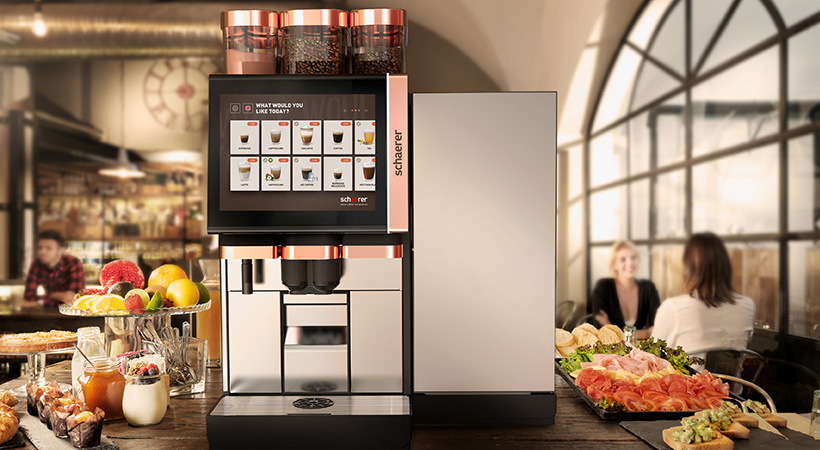
“Scale is the big coffee machine killer,” he says. “Regular thorough descaling is essential, but it’s not easy, so Schaerer has developed its Uptime system, which allows staff to perform the procedure. Using a special cartridge, the Coffee Soul machine performs a descale overnight and is ready for use in the morning – there is a self-cleaning function with sensors that record when the machine is cleaned, by time and date.”
Why snow milk is hot
Schaerer is also involved in another recent big coffee machine development – the production of cold foamed milk. It has become apparent that even the major coffee-house chains have begun creating drinks with cold foam.
“There has been a rapid increase in demand for cold foam, but producing it to the right texture has been difficult,” explains Stockwell. “The Schaerer Coffee Soul features Best Foam technology, which can be finely tuned to create a variety of different hot and cold foams – staff can adjust the creaminess, the silkiness and the stiffness. The foam is created in an integral blender, which features two discs that spin in opposite directions and can be precisely adjusted.”
La Cimbali has also been working on cold-foaming technology. Several of its espresso machines now make cold foam, and the company has created a free, downloadable Milkì Mix (below) series of recipe ideas.
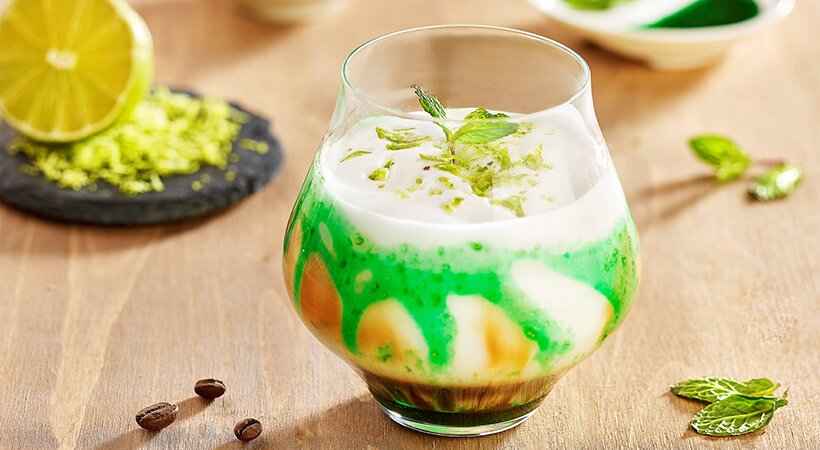
“Iced and cold coffees are becoming an all-year-round offer, and baristas are experimenting with cold milk foam, known as ‘cold-whipped milk’ or ‘snow milk’, to add an extra texture,” says La Cimbali national account manager Oliver Watt. “Cold milk foam is a thick and creamy topping which is perfect for layering over iced coffees – it doesn’t blend into the coffee, but rather sits on top. It works well with flavoured syrups, so we are seeing drinks such as nitro coffee with caramel cold foam creeping onto the high street.”
Busy with the fizzy
It is not just foam which needs to be cold, according to several suppliers. They point out that an ability to deliver cold water, and even sparkling cold water, is now required more in beverage service. At Extract Coffee Roasters, technical manager Ed Brown-Jackson has adopted the Marco FRIIA for this purpose. “Our whole team love this machine,” he says.
Dublin-based Marco used to be known as a maker of water boilers until it pioneered the concept of precisely adjustable hot-water dispensers for counter-top use. Its machines were widely adopted by the coolest coffee houses for the exact-temperature brewing of filter coffees and teas.
Marco’s older-style dispensers heated water in an undercounter tank; the new system adds aluminium block technology to chill water as well. Sparkling water is generated through the addition of a carbon dioxide drum and regulator, which carbonates the water as it is pulled into the chiller.
“It was designed to address trends and demands from the hospitality industry,” says Marco global marketing manager Gemma Kiernan. “We have seen a major increase in customers’ demand for wider beverage choice, which means broadening the menu, and can mean investing in more stock and more equipment. We developed the Marco FRIIA to avoid the need for multiple water systems – it can be used for tea, coffee, hot chocolate, iced tea, sparkling water or lemonades and fruit infusions. One multipurpose font takes up very little counter space.”
At Lincat, global marketing manager Helen Applewhite has also been looking at a combined boiler and chiller. Lincat has a new product that can produce 28 litres of hot water and 12 litres of chilled, filtered water an hour.
The market is no longer all about hot coffee and tea, agrees Allan Pirret, sales director at Novus Tea. Among the most acceptable current ‘soft’ drinks are cold-brew coffee and tea, and Novus’s new counter-top machine is for nitro infusion, a big trend in coffee in 2019. When used on tea, the nitro introduces a creamy, viscous mouthfeel which, Pirret says, “raises cold-brew tea to an even higher level. It has a similar feel to a latte, giving a new textural dimension for tea drinkers. Cold-brew tea is now perceived as an ideal soft drink for grown-ups.”
Customised is king
The issue of consumers demanding more choice applies equally to conventional coffee service, says Martyn Bell, category manager at Jacobs Douwe Egberts. Even in self-service, customers want custom-made coffees.
“When customers walk into a coffee shop they expect a wide variety of drink choices, and baristas offer a truly bespoke service,” Bell says. “In self-service coffee areas, consumers now really value choice, such as cappuccinos and lattes, but if they can shape the coffee to their own preferences, that’s even better.
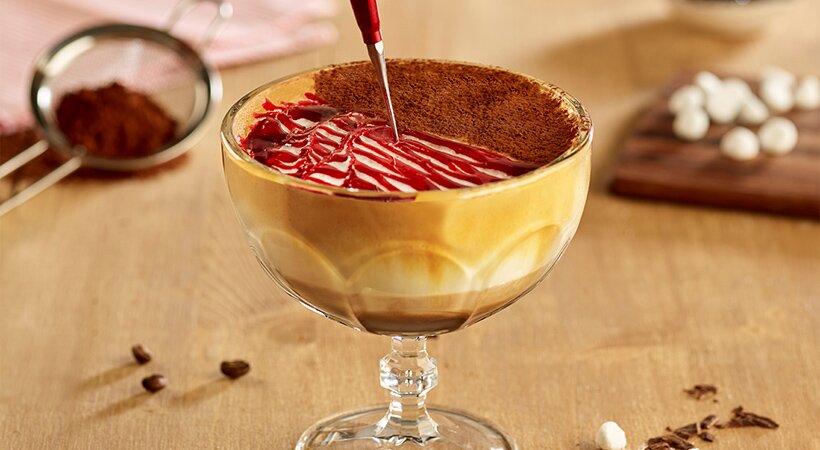
“We spotted this and launched an update to the Cafitesse machine, which replaces buttons with an interactive touchscreen. Customers in high-volume outlets can now choose a strong coffee with little foam, or increase the amount of milk and dramatically change each drink.”
Finer grinds
Elsewhere in the beverage sector, there have been advances in counter-top coffee grinding. The Mahlkönig E65S “grind by weight” machine is a first, according to Angus McKenzie, head of business at Brew-It Group. Once again, it is an introduction that heralds a change of thinking. For many years coffee grinders were adjusted by a click-control that regulated the size of the grounds, and the accuracy of quantity delivered (the ‘dosing’) was often a more-or-less affair – give or take a gram here or there.
“The control of particle size and the accuracy of dosing have been the holy grail for baristas,” McKenzie says. “What really defines particle size is not the number at which the grinder is set, as this changes with the wear of the blades and the humidity. What really matters is the actual distance between the grinder burrs. The E65S has a disc distance detection system, so keeping perfect grind settings has never been so easy.
“An integrated high-precision self-calibration system confirms the perfect dose each time. Some dosing methods vary because they get affected by the condition of the coffee or indeed the grinder, but our grind-by-weight delivers exactly the grams you set.”
Capsules climb the quality curve
When the capsule concept became established, Lavazza declared it had become a “no-brainer” for certain parts of the catering trade.
“It was seen as a product for home use and for small restaurants and B&Bs, but now it goes much further,” says managing director David Rogers. “Increasingly, it is used for venues that have a transient workforce of untrained baristas but which require the same level of coffee quality as the high street.
“Lavazza has been particularly successful with the system in holiday and leisure complexes, quick-service restaurants, and public healthcare organisations – we grew double-digit in this channel in 2019. And the new eco-capsule has been welcomed and well received.”
Lavazza has also recently introduced double-shot coffee capsules which, depending on the machine, will deliver two single espressos or a doppio.
Suppliers
Brita
08447 424990
Caffeine/Schaerer
01707 278400
Hydracs
www.espressoservice.co.uk/hydracs
020 8236 2580
Jacobs Douwe Egberts
www.jacobsdouweegbertsprofessional.co.uk
0808 100 1030
La Cimbali
020 8238 7100
Lavazza
01895 209750
Lincat
01522 875500
Mahlkoenig/Brew It
01246 454400
Marco
01933 666488
Novus Tea
01621 776179


